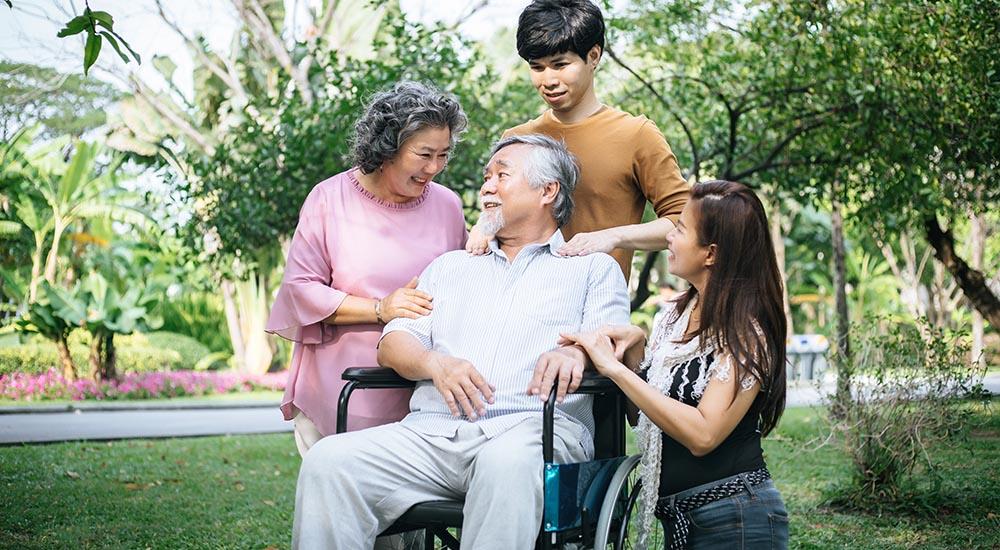In an increasingly aging population, the role of caregivers has never been more crucial. Whether they are family members, friends, or professional aides, caregivers dedicate their time, energy, and hearts to ensuring that their loved ones receive the care and support they need. However, the weight of this responsibility can often lead to stress, isolation, and burnout. This article delves into the essential need for a robust support system tailored for caregivers—a haven where they can recharge, share experiences, and receive both emotional and practical assistance. By highlighting effective strategies and resources, we aim to illuminate the path toward fostering well-being for those who selflessly provide care. Join us as we explore the intricacies of creating an environment that nurtures caregivers, empowering them to thrive both personally and professionally.
Understanding the Unique Challenges Faced by Caregivers
Caregivers often navigate a complex landscape of emotions and responsibilities, encountering hurdles that can impact their mental and physical health. Isolation is a common challenge; many caregivers feel alone in their journey, as they often prioritize the needs of those they care for over their own social interactions. The stress of balancing caregiving duties with personal life can lead to burnout, making it essential to recognize the signs early. Additionally, caregivers may face financial strains, especially if the individual they care for lacks adequate insurance coverage or if the caregiver had to reduce their working hours. Understanding these multiple dimensions can help in creating targeted support solutions.
Moreover, caregiving can often involve navigating the healthcare system, which can be overwhelming. Many caregivers are thrust into this role without formal training, leading to feelings of inadequacy and uncertainty about how to provide the best care. Emotional toll plays a significant role as well; caregivers frequently grapple with feelings of guilt or sadness, especially if they perceive they’re not meeting expectations, either their own or those of others. To effectively support caregivers, it is crucial to address these unique challenges by fostering a community that offers shared experiences and resources. Consider implementing organized support groups, online resources, and respite care options to alleviate some of these burdens and empower caregivers in their critical roles.
| Challenge | Description |
|---|---|
| Isolation | Feeling alone in caregiving efforts, often lacking social support. |
| Burnout | Physical and mental exhaustion due to caregiving demands. |
| Financial Strain | Increased costs related to care and potential loss of income. |
| Emotional Toll | Guilt and sadness stemming from the challenges of caregiving. |
Building Emotional Resilience Through Community Engagement
Engaging with a community can significantly enhance emotional resilience, particularly for caregivers who often face overwhelming challenges in their roles. By participating in community events, support groups, or social initiatives, caregivers can connect with others who share similar experiences. This sense of belonging fosters feelings of empathy and understanding, making it easier to cope with the stresses that caregiving entails. The connections formed through these interactions can lead to the development of supportive relationships, providing emotional nourishment and reinforcing the idea that caregivers are not alone in their struggles. Consider these benefits of community engagement:
- Reduced feelings of isolation
- Access to shared resources and insights
- Opportunities for personal growth and skill building
- Increased sense of purpose and fulfillment
Moreover, structured community programs designed specifically for caregivers can offer tailored support, helping them to navigate their unique challenges more effectively. Such initiatives often include workshops, support groups, and recreational activities that contribute to both mental and emotional health. Implementing a coordinated approach to community involvement can also enhance caregivers’ coping strategies, allowing them to face adversities with greater confidence. Here’s a quick overview of essential community support activities:
| Activity | Description |
|---|---|
| Support Groups | Discussions that provide emotional and psychological support. |
| Workshops | Training sessions focused on skill improvement and stress management. |
| Social Events | Gatherings designed to foster relationships and reduce isolation. |
| Volunteer Opportunities | Engagement in community service to boost well-being. |
Implementing Effective Coping Strategies for Stress Management
Caregivers often experience significant stress as they juggle their responsibilities while trying to maintain their own well-being. Implementing coping strategies can be essential to help manage this stress effectively. Prioritizing self-care is a fundamental step; caregivers should set aside time for relaxation and activities they enjoy. Additionally, engaging in mindfulness practices, such as meditation or yoga, can greatly enhance emotional resilience and provide a much-needed mental break. It is also beneficial to develop healthy routines that promote physical health, including regular exercise and nutritious meal planning, ensuring that both body and mind are nourished.
Building a strong support network is equally vital in combating stress. Caregivers should seek connections with family members, friends, or peer support groups who understand their challenges. These relationships can provide a safe space to share experiences and vent frustrations. Utilizing technology to stay connected—through video calls or social media—can help maintain these relationships, especially when physical distance is a barrier. To facilitate this, consider creating a chart for regular check-ins:
| Support Network | Contact Method | Frequency of Check-Ins |
|---|---|---|
| Family Members | Phone/Video Call | Weekly |
| Friends | Text/Message | Every other week |
| Support Group | In-Person/Online | Monthly |
Establishing clear lines of communication within this support system helps ensure that caregivers do not feel isolated and allows for the sharing of helpful resources. By combining personal coping strategies with strong community ties, caregivers can foster resilience, making it easier to navigate the day-to-day challenges they face.
Resource Connection: Essential Tools and Support Networks for Caregivers
Building a comprehensive support network is vital for caregivers, as it equips them with necessary tools and resources to navigate their challenging roles. Community organizations and local support groups can provide not only emotional support but also practical advice and shared experiences. Consider joining networks such as:
- Support Groups: Local or online groups where caregivers can share their journey.
- Educational Workshops: Sessions focused on caregiving techniques, stress management, and self-care methods.
- Respite Care Resources: Services that offer temporary relief to caregivers, allowing them time to recharge.
Furthermore, leveraging technology can enhance the caregiver experience significantly. Apps dedicated to caregiving can help organize schedules, manage medications, and connect with medical professionals. Essential resources include:
| Resource Type | Description | Link |
|---|---|---|
| Caregiver Apps | Apps that assist in time management and health tracking. | Visit |
| Online Forums | Platforms for advice and emotional support from peers. | Visit |
| Local Meet-Ups | Regular gatherings to connect with fellow caregivers. | Visit |
Key Takeaways
As we conclude our exploration of crafting a robust support system for caregivers’ well-being, it’s essential to recognize that the journey of caregiving is both rewarding and challenging. By prioritizing one’s own health and well-being, caregivers not only enhance their capacity to provide care but also enrich the lives of those they support.
Creating a support network involves recognizing the value of community, seeking professional guidance, and embracing self-care practices, all of which pave the way for a healthier, more balanced caregiving experience. Whether it’s through joining support groups, utilizing resources, or simply setting aside time for personal care, every step taken towards building that support system is a step towards resilience and longevity in caregiving.
Remember, as a caregiver, you are not alone in this journey. Reach out, seek help, and connect with others who understand the complexities and triumphs of caregiving. By doing so, you contribute to a culture that values the well-being of caregivers, ensuring that none of us face our struggles in isolation. Together, let’s foster environments where caregivers can thrive, not just survive, in their vital roles. Thank you for reading, and take care of yourself as you care for others.






